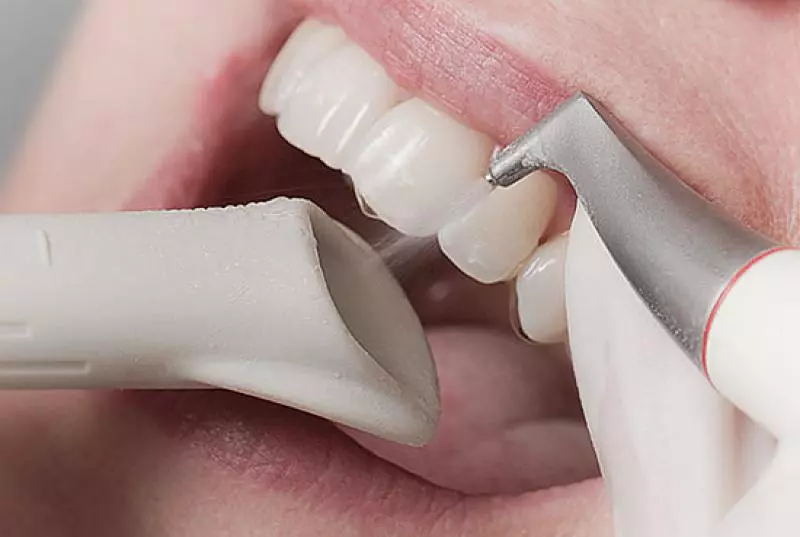Dental Stains - Abu Dhabi - Dubai
Dental stains can be caused by various factors, including certain foods and beverages, smoking, poor oral hygiene, and certain medications. If you're looking to remove dental stains, there are several options available. Here are a few common methods:
- 1. Professional teeth whitening: One of the most effective ways to remove dental stains is through professional teeth whitening procedures. Dentists can use bleaching agents, such as hydrogen peroxide or carbamide peroxide, to lighten the stains and restore the natural color of your teeth. This can be done in-office or with take-home whitening kits prescribed by your dentist.
- 2. Over-the-counter whitening products: There are numerous whitening toothpastes, whitening strips, and whitening gels available over the counter. While these products may provide some improvement, they are generally less effective than professional treatments. It's important to follow the instructions carefully and consult with your dentist if you have any concerns.
- 3. Improved oral hygiene: Maintaining good oral hygiene practices can help prevent and remove dental stains to some extent. Brush your teeth at least twice a day using a toothpaste with stain-removing properties. Additionally, floss daily to remove plaque and stains between teeth.
- 4. Avoiding stain-causing substances: Certain foods and beverages can contribute to dental stains. Limiting your consumption of coffee, tea, red wine, soda, and other dark-colored or acidic substances can help prevent further staining. If you do consume them, rinse your mouth with water afterward to minimize the staining effects.
- 5. Dental cleanings: Regular dental cleanings by a dental professional can help remove surface stains and tartar buildup. During these cleanings, the dentist or dental hygienist will use specialized tools to remove plaque, tartar, and surface stains from your teeth.
It's important to note that the effectiveness of stain removal methods can vary depending on the severity and type of stains. If you have stubborn or deep stains, it's best to consult with your dentist, who can assess your specific situation and recommend the most suitable treatment option for you.

